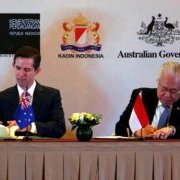5-Jul-2020
Civil society groups sound alarm over COVID-19 claims in ’corporate courts’
Countries could be facing a wave of cases from transnational corporations suing governments over actions taken to respond to the Covid pandemic using a system known as investor-state dispute settlement, or ISDS. Some 630 organisations from across the world, representing hundreds of millions of people, are calling on governments in an open letter to urgently take action to shut down this threat.
3-Jul-2020
bilaterals.org
Interview with Yamina Saheb, former head of unit in the Energy Charter Treaty Secretariat .
15-Jun-2020
The Express Tribune
Pakistan’s chances of having its $6 billion penalty in the Reko Diq case annulled have received a boost with a committee of the International Centre for Settlement of Investment Disputes (ICSID).
11-Jun-2020
World Commerce Review
Arbitration cases due to COVID emergency measures would exacerbate the challenges that public budgets are already facing due to the need for stimulus measures and the difficulty in collecting government revenue.
11-Jun-2020
Daily Monitor
Joining the Energy Charter Treaty could cost developing countries money that is urgently needed to fight Covid-19 and a loaming economic crisis. The Energy Charter Treaty has become increasingly controversial.
5-Jun-2020
Geopolitical Monitor
Ecuagoldmining’s estimated $20 million investment so far could turn into a $469 million award, should it emerge victorious in an arbitration proceeding.
2-Jun-2020
In These Times
Wealthy corporations may use trade courts to keep public health measures from cutting into their profits.
























